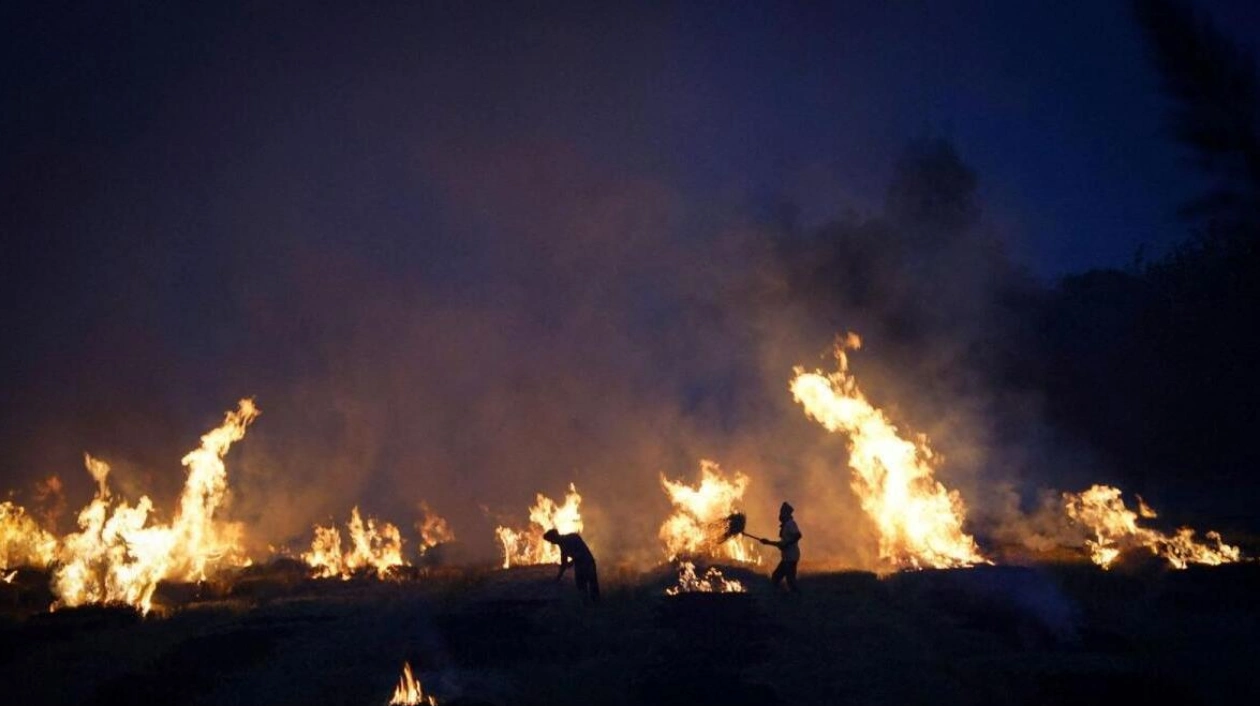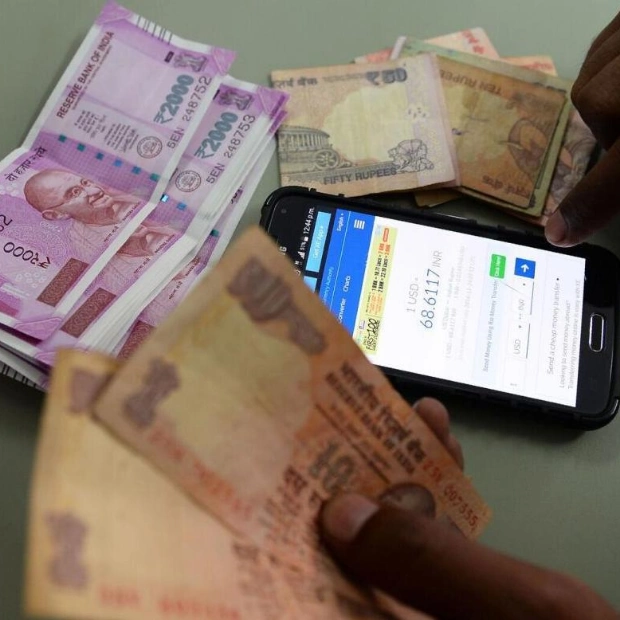At least 16 farmers have been arrested in India's northern state of Haryana for illegally burning paddy stubble to clear fields, a practice that exacerbates air pollution in the region around New Delhi as winter approaches, authorities said on Tuesday.
India's national capital region faces annual pollution challenges as temperatures drop and cold air traps construction dust, vehicle emissions, and smoke, much of which officials attribute to the neighboring agricultural states of Punjab and Haryana.
Police in Haryana's Kaithal region informed Reuters that 22 complaints of stubble burning have been filed this year, resulting in the arrest of 16 individuals. Birbhan, a deputy superintendent of police who uses only one name, confirmed that those arrested had been released on bail.
Investigations are underway against nearly 100 farmers across Haryana, while over 300 have been fined, according to local media reports. Delhi's air quality was recorded as 'very poor' on Tuesday morning, with an Air Quality Index (AQI) of 320, according to the Central Pollution Control Board (CPCB).
Delhi ranked as the second-most polluted city in the world on Tuesday, according to a live ranking by IQAir, trailing only Lahore in neighboring Pakistan's Punjab province. Punjab's chief minister has previously called for 'climate diplomacy' with India to combat smog.
Punjab police reported at least 182 complaints have been registered and 71 people arrested for activities including burning stubble and trash, operating prohibited brick-kilns, and driving smoke-emitting vehicles. Senior Punjab minister Marriyum Aurangzeb mentioned that resources have been allocated for artificial rain and other measures, with each instance of artificial rain estimated to cost between 5 million rupees ($18,000) and 7 million rupees ($25,200).
India's environment ministry anticipates Delhi's air quality to remain in the 'Very Poor' category (300-400) in the coming days due to unfavorable meteorological and climatic conditions. To combat pollution in Delhi, authorities have implemented measures such as water sprinkling on roads to reduce dust, increased public bus and metro services, and higher parking fees to discourage car use.
Environmentalists argue that these measures are insufficient. 'These are only emergency measures... This air pollution mitigation needs a long-term comprehensive solution rather than these ad hoc measures,' said environmentalist Vimlendu Jha.
Source link: https://www.khaleejtimes.com






